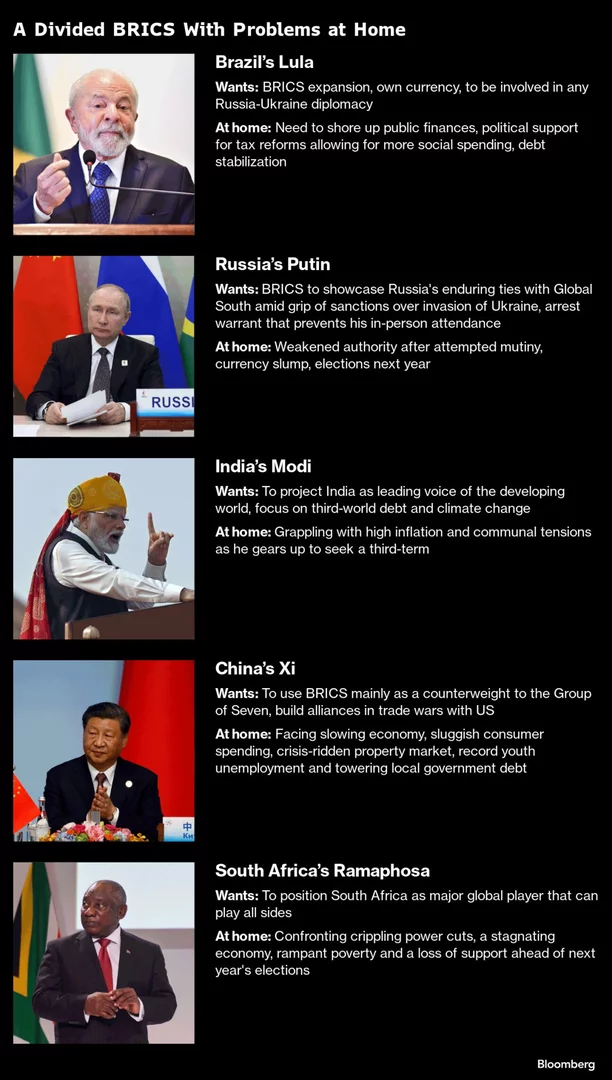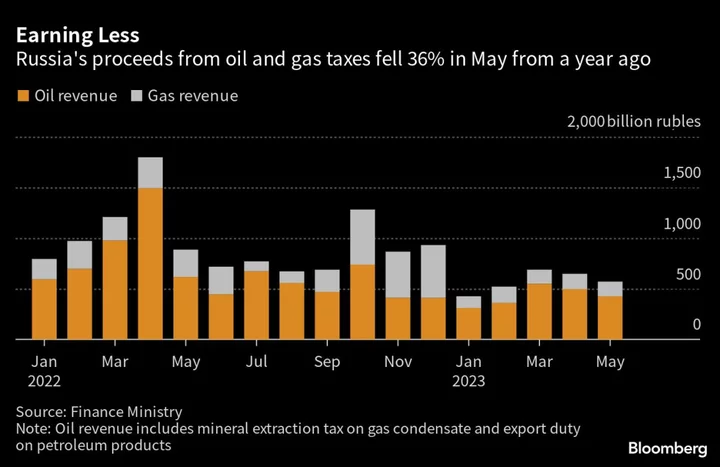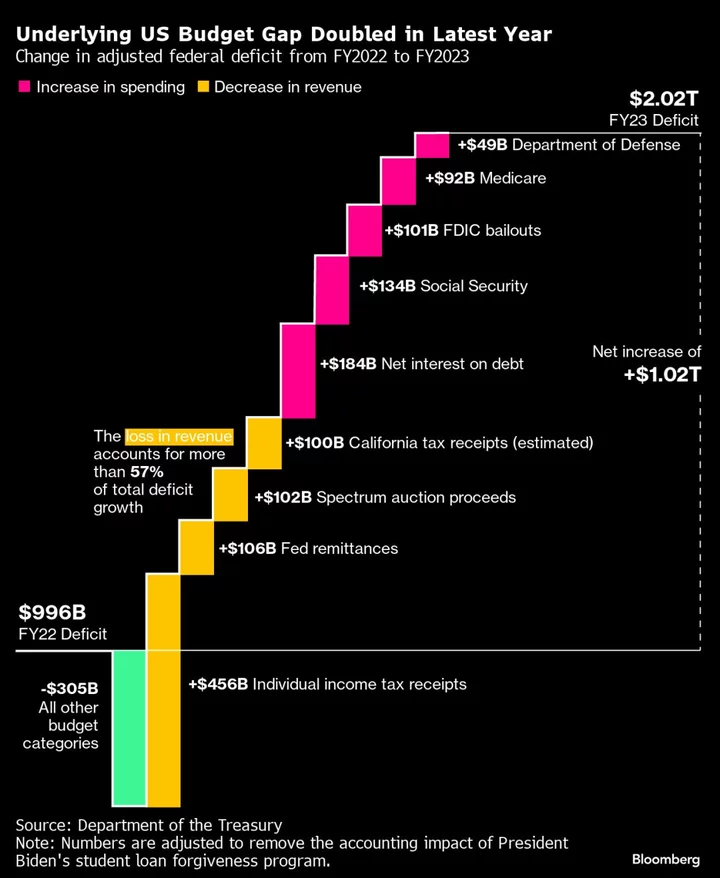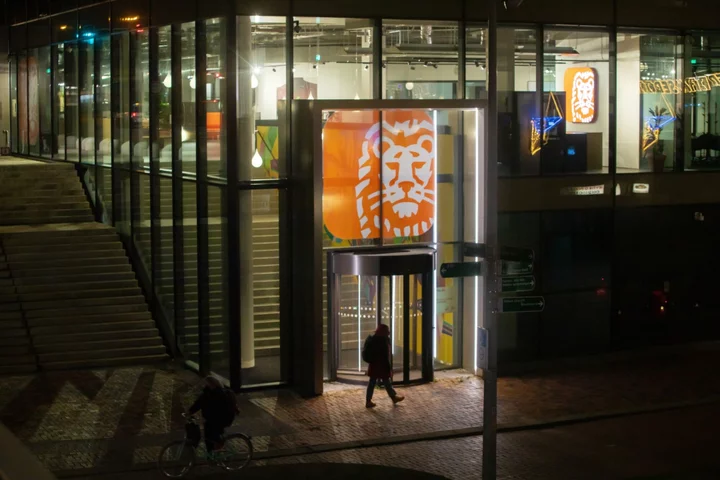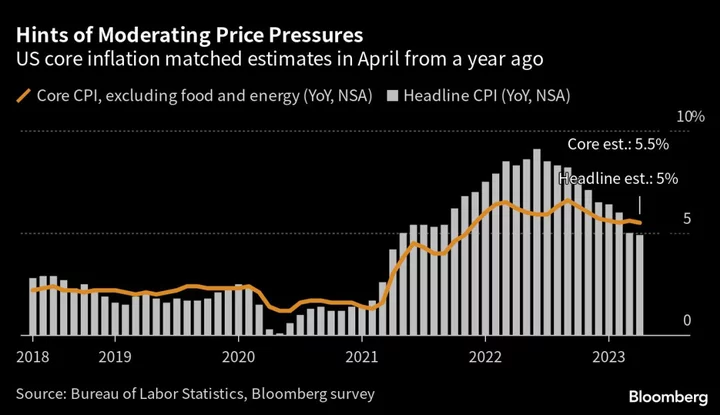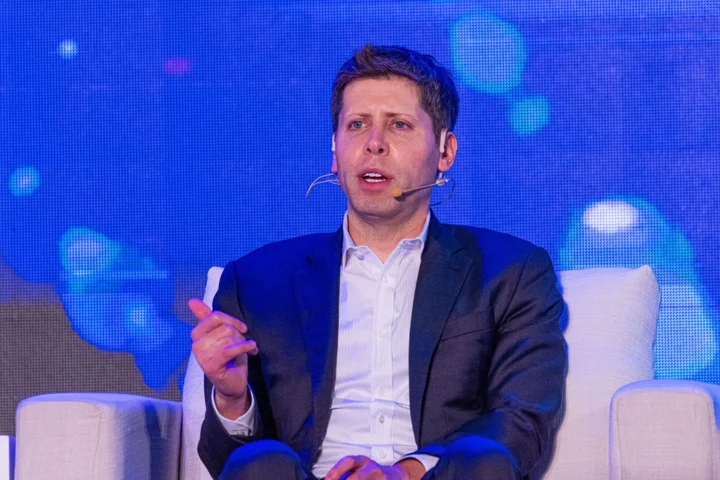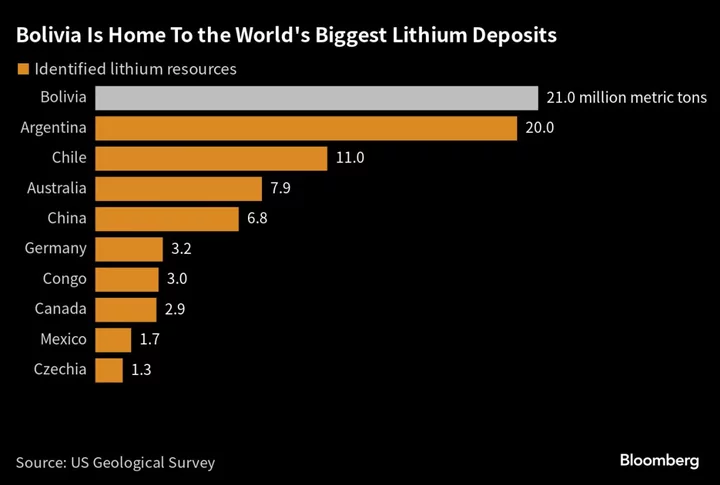The world’s leading emerging market powers have complained for years about being sidelined by wealthy nations. Now they are mounting their most ambitious challenge yet to the status quo.
The BRICS bloc — Brazil, Russia, India, China and South Africa — will use an annual leaders’ summit in Johannesburg this week to begin the process of enlisting more members to bolster its global heft, a push driven mainly by Chinese President Xi Jinping but also backed by Russia and South Africa. There will also be talks on how to accelerate a shift away from the dollar, in part by increasing the use of local currencies in trade between members, which is surging, according to a draft agenda seen by Bloomberg.
The bloc has failed to convert its growing economic might into significant political clout since it began holding summits 15 years ago. But the current splintering of the world order amid rising US-China frictions and the splits over Russia’s invasion of Ukraine provides a fresh opening for it to become a louder voice of the Global South and potentially to challenge the US and its allies.
“We want to make the BRICS very strong politically, very strong financially,” said Brazilian President Luiz Inacio Lula da Silva.
The summit could see the bloc’s first expansion since South Africa was added in 2010. High on the list of potential candidates are Indonesia and Saudi Arabia, as well as the United Arab Emirates, Algeria and Egypt. But India wants the process to be gradual.
An expanded group would represent about half of global output by 2040, Bloomberg Economics estimates show, double the share of the Group of Seven, a reversal from the turn of this century. A bigger BRICS would account for almost half of the global population, up from 42% currently, according to Anil Sooklal, South Africa’s ambassador to the bloc.
“These countries have risen economically, they have voiced their concerns, they’re now capable of offering alternatives if their voices are not heard,” said Karin Vazquez, a Shanghai-based associate professor of diplomatic practice at India’s O.P. Jindal Global University.
To date, deep divisions among members have limited the consensus-driven bloc’s ability to increase its sway at institutions such as the International Monetary Fund, the World Bank or the United Nations Security Council. A BRICS development bank has lent only $32.8 billion in eight years in operation, a tiny fraction of the amount the IMF and World Bank have disbursed over the period. Suggestions that the bloc introduce a common currency haven’t gone anywhere.
The economies of Brazil, South Africa and Russia have all underperformed and China’s is slowing down.
A market capitalization-weighted measure of the five BRICS nations’ stocks has risen 81% since 2009, compared with a 379% rally in the S&P 500 Index. Factor in the weakness of their currencies during this time and their dollar returns look much worse.
Russian President Vladimir Putin is staying away from this year’s summit because he faces a war-crimes arrest warrant from the International Criminal Court, of which host South Africa is a member. He will participate remotely.
The gathering will give him another opportunity to present his narrative of the Ukraine invasion directly to leaders from the Global South, many of whom have been sympathetic to his accounts in the past. Brazil, Russia, India, China and South Africa have been cautious about openly taking Russia’s side in the war, but have also been unwilling to ally with the West in opposing it.
While the European Union sees the BRICS as primarily a talk shop – which could be weakened rather than strengthened by expansion – Putin’s ability to use the group as an international platform is a worry, said an EU official who spoke on condition of anonymity because he isn’t authorized to comment publicly.
The bloc has been a “big disappointment,” said Jim O’Neill, the former Goldman Sachs Group Inc. chief economist who coined the acronym BRIC in 2001 to highlight their rising global heft. “China and India rarely agree on anything, which is a fundamental problem.’’
The world’s two most-populous nations have been locked in a border dispute for years. Their army commanders last week agreed to work swiftly toward easing their differences, opening the door for progress in negotiations between Xi and Indian Prime Minister Narendra Modi.
India is wary that expanding BRICS will transform the group into a mouthpiece for China, while Brazil is also worried about alienating the West, according to officials familiar with the bloc’s internal negotiations. But they are resigned to admitting new members, even as they push for an agreement on the rules and criteria.
Read more about BRICS:
- Five Things to Watch as South Africa Hosts BRICS Summit
- How BRICS Became a Club That Others Want to Join: QuickTake
- BRICS Is Broken and Should Be Scrapped: Opinion Wrap
- BRICS to Discuss Accelerated Use of Local Currencies at Summit
- Xi’s Visit to South Africa for BRICS Marks Rare Trip Abroad
“Since BRICS was founded, China's become not only more aggressive regionally, or even along the border with India, but also it, too, wants to be the standard bearer for the Global South,” said Katherine Hadda, a former senior US diplomat who now heads US-India policy studies at the Center for Strategic and International Studies in Washington. “India doesn't want that."
This week’s meeting hosted by South African President Cyril Ramaphosa will be the first in-person BRICS summit since the global pandemic, and Lula, Xi and Modi have confirmed their attendance. Heads of state from more than 30 African counties, along with others from the Global South, will sit in as observers and more than 20 nations have formally expressed interest in becoming members. The bloc’s five leaders will decide who can join and when, with consensus largely reached on an admission policy, according to Sooklal.
“The appeal of BRICS is that it is led by states of the South and is thus seen as a symbolic way of rejecting Western leadership,” said Robert Schrire, a politics professor at the University of Cape Town. “It is this symbolism, rather than any expectation of economic gains, that drives the desire of those who wish to join the bloc.”
--With assistance from Colum Murphy, Anup Roy, Gina Turner, Benjamin Harvey, Eugene Reznik, Iain Marlow, Srinivasan Sivabalan and Scott Johnson.
Author: Simone Preissler Iglesias, S'thembile Cele and Sudhi Ranjan Sen

